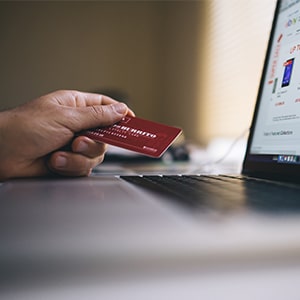Apart from malware and data breaches, identity theft is the most used method by cybercriminals to obtain data and funds from unsuspecting victims illegally. With this method, cybercriminals gain access to your financial accounts, assume your position in all your socially registered platforms – some even attend events and services in your identity.
Perhaps you’ve already fallen victim of identity theft in the past, and if you haven’t already, you wouldn’t want to have a taste of it. Below are practices that will help you keep your online data safe and sound, away from identity thieves.
 Tenga siempre cuidado con los sitios de phishing en línea
Tenga siempre cuidado con los sitios de phishing en línea
Phishing sites always appear to be legitimate, but most of them are looking to harvest your data or drop malware to your device. They ask you to input your personal information like username, password – some will even ask for your social security number, address, credit card number, insurance data as well as a driving license.
Es importante saber que la solicitud realizada puede parecer normal, como los casos de solicitud de un seguro o de apertura de una cuenta bancaria. Si alguna vez tienes dudas sobre un sitio, asegúrate de comprobar si el certificado del sitio es válido mirando los detalles HTTPS. Además, puedes visitar su página de contacto e intentar obtener la validez de sus ubicaciones físicas.
Utilice siempre una contraseña única para cada cuenta en línea
Online thieves will always look out for your passwords to have access to your data. It’s advisable to use the standard password practices when coming up with a password for your account. They include using strong passwords that are unique to each account. Additionally, use good password managing tool to store your passcodes and passwords safely.
Evite dar demasiada información personal
Giving out too much personal information on your social media account is a risky affair. Hackers and phishers will always look up for your online information whenever they make you their target. While social media is a convenient platform where you can interact with the rest of the world, be careful of third-party apps which always send links on both your timeline and direct messages (DMs). Most of these links will ask for your data once you open them, and you will end up compromising your identity.
 Lleve un registro de sus estados financieros, incluidas las tarjetas de crédito
Lleve un registro de sus estados financieros, incluidas las tarjetas de crédito
Vigilar su información financiera es clave para luchar contra el robo de identidad y evitar el fraude. Lo más probable es que alguien ya tenga su información financiera y esté planeando utilizarla. Acostúmbrese a solicitar sus extractos financieros para poder revisarlos en todo momento. En caso de cualquier transacción sospechosa sobre todo a través de su tarjeta de crédito, pida aclaraciones. Si resulta que se ha visto comprometido, cierre su cuenta inmediatamente y solicite la reapertura de otra a continuación.
Utilice siempre una VPN
In as much as you practice the above safety precautions, always use a VPN to help keep your online data more secure and private. A VPN does this by keeping you anonymous when surfing online. It achieves this by encrypting your data, thus making it hard for phishers and stalkers to get to you. Additionally, a strong VPN will hide your physical location by masking your IP address.
 Tenga siempre cuidado con los sitios de phishing en línea
Tenga siempre cuidado con los sitios de phishing en línea Lleve un registro de sus estados financieros, incluidas las tarjetas de crédito
Lleve un registro de sus estados financieros, incluidas las tarjetas de crédito

